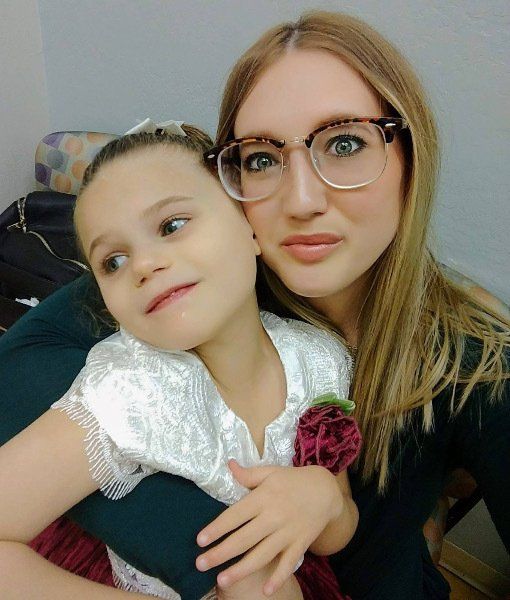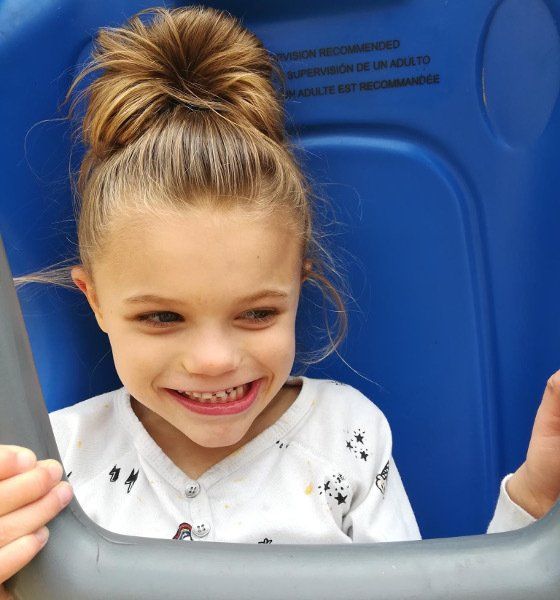I Challenge You

Today is Rare disease day!!! After almost 7 years, Belle was finally diagnosed with a rare, newly founded, genetic disease called OKUR-CHUNG Neurodevelopmental syndrome ( Named after the two Scientists who discovered it.) We are so grateful for answers, and the sweet community we have gained.
I thought I’d give a little glimpse into Belle and our life with her so far. She is our first Born and will be turning 8 this year!!! She LOVES all things music, lights, and stimulation like swings and trampolines. She loves her family. Her favorite person in the world is her Bampa Cummins. She loves to cuddle and be warm. Her Grandma Burnham just made her a beautiful weighted blanket that she loves. She is still non-verbal besides some noises and signs. This is the one thing I wish I could improve, so that I could better understand her needs. She walked at the age of four. We never knew if she would, so it was huge. She has a gastrointestinal tube (a tube that we use to put food directly her stomach. She can eat a little but not enough to survive. So grateful for modern medicine). She is immunocompromised and gets sick often. Which means we all get sick pretty often. She is the sweetest spirited person I have ever met. At times I wonder why we were given this specific trial/blessing. I often don’t feel like I am good enough for the task. I am so grateful for the chance to try my best though. I know everyone in our family is better for being near her and knowing her and most importantly serving her.
She loves making friends and parents of special needs kids are usually pretty hard to offend. So, the next time you or your child see someone with special needs while your out, I challenge you to take a minute and say hello. Ask questions. Awareness is the key to change.

